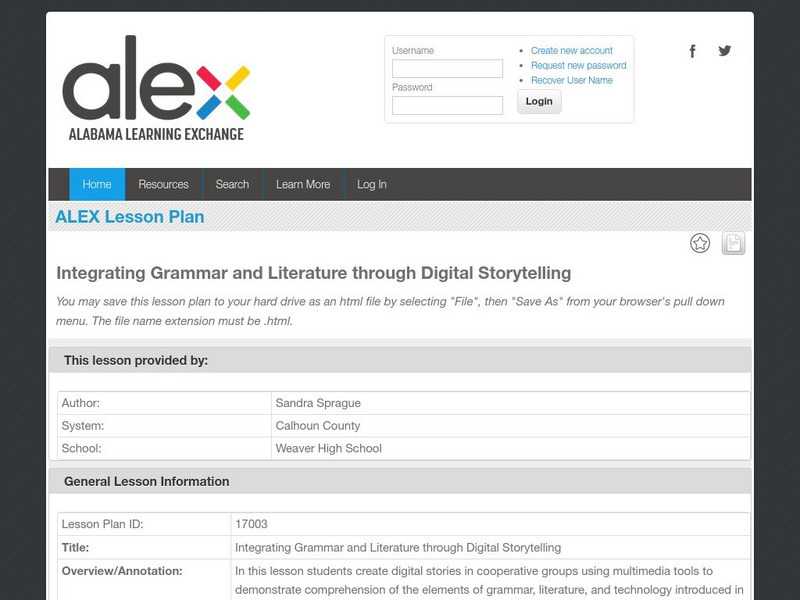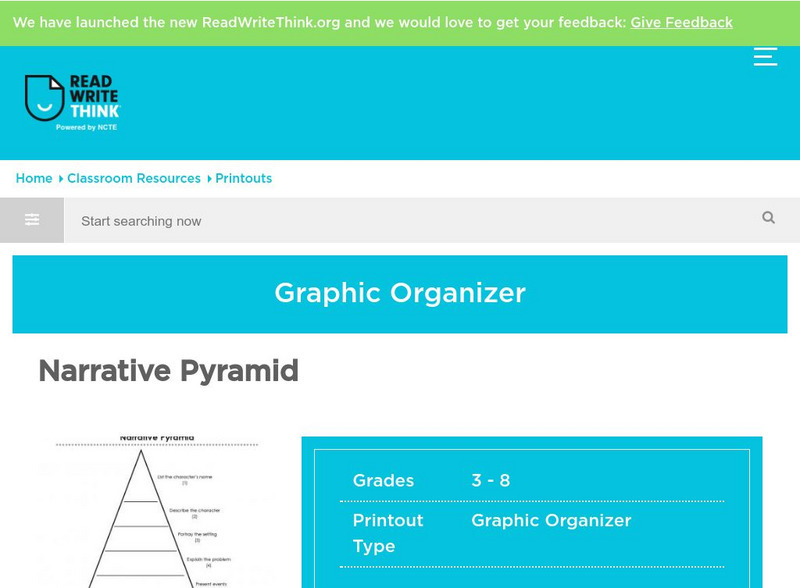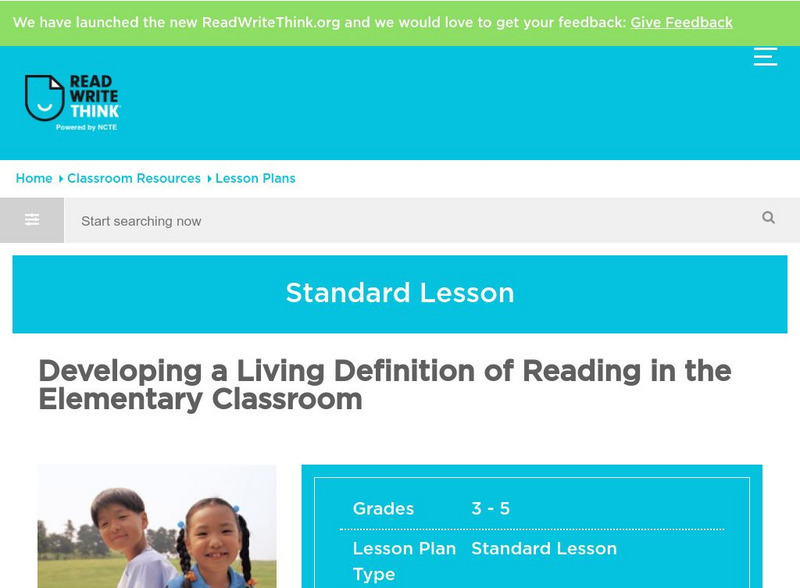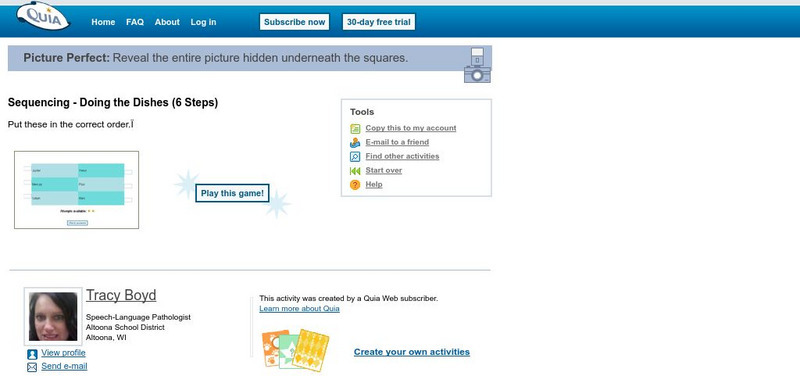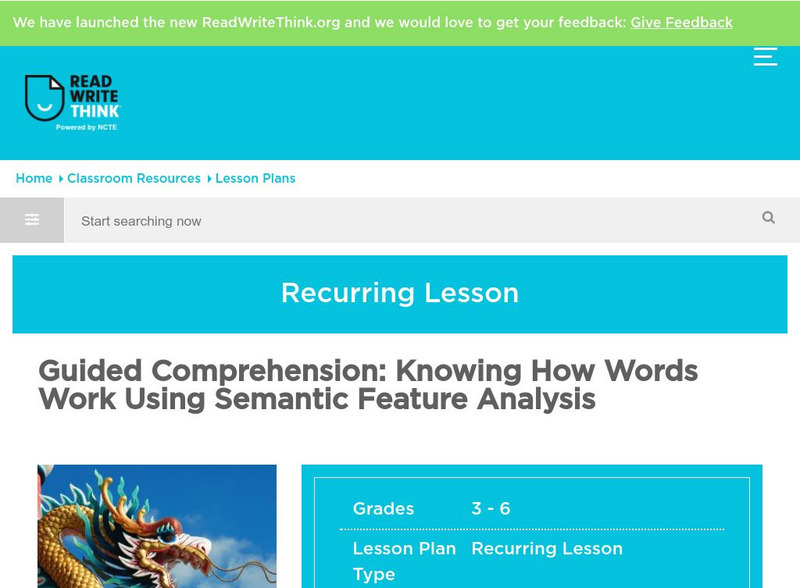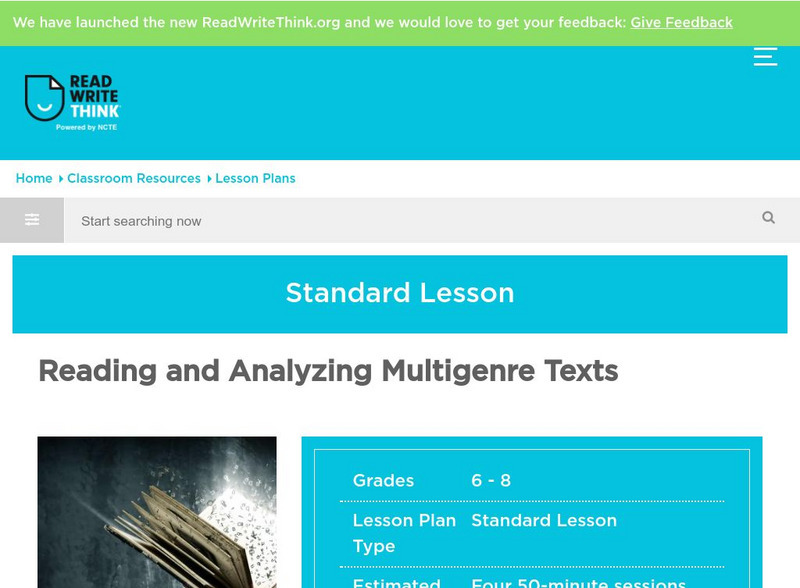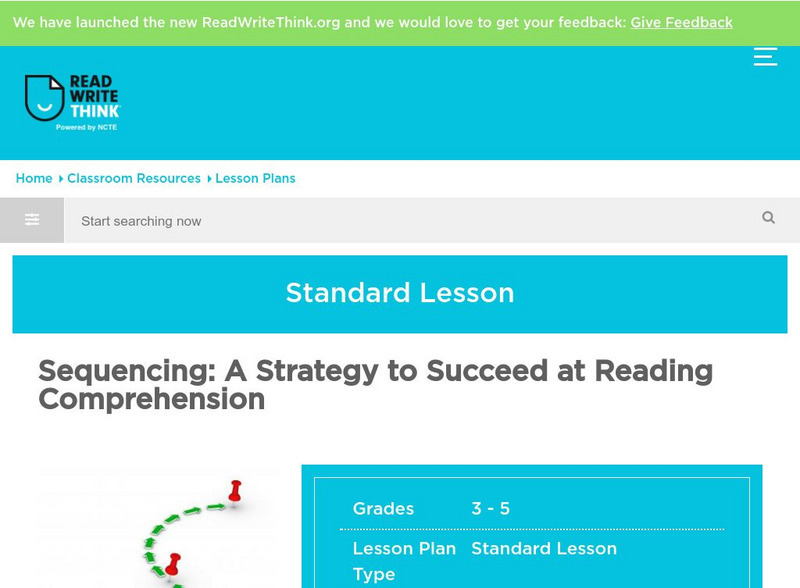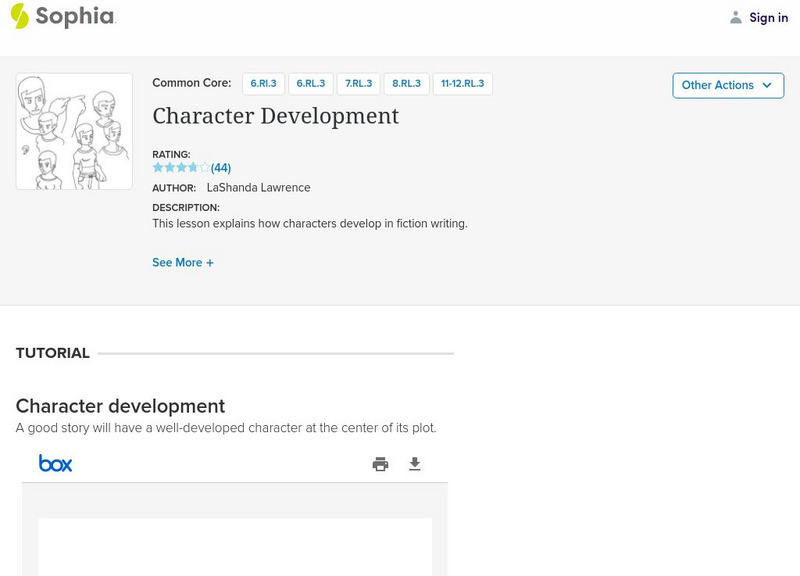Writing Fix
Writing Fix: Emotions and Colorful Days
In this lesson students will learn to write descriptively.
Curated OER
Mc Graw Hill: Major Events
Learn how writers use details to describe major events in a story.
McGraw Hill
Mc Graw Hill:informational Text: Analyze Development of Text Elements:individuals
Read an informational piece, and learn how to analyze the development of individuals in the text. Includes practice exercises.
McGraw Hill
Mc Graw Hill: Informational Text: Analyze Development of Text Elements: Events
Read an informational piece, and learn how to analyze the development of an event in the text.
Other
Mo Dept. Of Ed.: Analyzing and Evaluating Literary Works
Lesson plan designed for eleventh graders. Students analyze and evaluate a short story for elements of literary works such as theme, mood, word choice, imagery, tone, and main idea. Includes a student handout and a scoring guide. It...
Alabama Learning Exchange
Alex: Grammar and Literature Through Digital Storytelling
In this lesson students create digital stories in cooperative groups using multimedia tools to demonstrate comprehension of the elements of grammar, literature, and technology introduced in the lesson. Students become actively involved...
Grammarly
Grammarly Handbook: Analysis
This page explains that analysis is crucial to the success of a paper as it answers the questions how and why and shows the reader that the writing is knowledgable. Logic and development work together to make the analysis clear. Examples...
ReadWriteThink
Read Write Think: Narrative Pyramid
A printable narrative pyramid where students can record information about a story including the character, setting, problem, main events, and solution. Directions on how to use this type of graphic organize as well as lists of teaching...
ReadWriteThink
Read Write Think: Developing a Living Definition of Reading in the Elementary
Using the guiding question, "What is reading?" students interact with a variety of texts as they uncover the skills necessary to interact with texts and develop a definition of reading.
Quia
Quia: Polygon Quiz
In this game, students are to number the steps for making cookies in chronological order to reveal a hidden picture.
Quia
Quia: Doing the Dishes
In this game, students are to read all nine steps to making homemade pizza and then number them in chronological order to reveal a hidden picture. Java is required.
ReadWriteThink
Read Write Think: Guided Comprehension: Semantic Analysis
Lesson introduces learners to comprehension of knowing how words work. Students learn semantic feature analysis and examine folktales, myths, and fables using this analysis to better understand these terms and texts.
ReadWriteThink
Read Write Think: Reading and Analyzing Multigenre Texts
This lesson plan deals with the process of analyzing a variety of literary texts from poetry and letters to diary entries and works of fiction. Included in the lesson plan is an overview, practice, objectives, resources, preparation, and...
ReadWriteThink
Read Write Think: Sequencing a Strategy to Succeed at Reading Comprehension
Contains plans for lessons that use the story of Paul Bunyan to teach about sequencing and order of events. In addition to objectives and standards, this instructional plan contains links to sites used in the lessons as well as...
ReadWriteThink
Read Write Think: Writing Abc Books to Enhance Reading Comprehension
Contains plans for four lessons that are adaptable to many texts that young scholars may be reading. Students analyze the text for literary elements such as characters, setting, figures of speech, and themes, and then publish their...
Quia
Quia: Literary Terms Quiz
In this self-scoring practice activity, students read four passages and select the main idea of each.
Grammarly
Grammarly Handbook: Organize Your Thoughts in Patterns
Tips on organizing ideas in an essay.
Quia
Quia: Plot Pre Test 7th Grade Remediation
A four question matching and multiple choice test over plot elements including exposition, rising action, climax, falling action, and resolution.
Other
Concepts and Practices for Writing Courses: Interpreting Literature
This tutorial surveys the way readers should interpret literature or text in symbols, syntax, meaning, and the like. The article features a Literary Toolkit for Analyzing Literature.
ReadWriteThink
Read Write Think: Exploring Before, During, After Sequencing
From Read-Write-Think, here is a three-day lesson plan in which a class collaborates to produce a book, focusing on carving a jack-o-lantern. The emphasis is on teaching the skill of sequencing events.
Houghton Mifflin Harcourt
Harcourt: School Publishers: Test Tutor: Sequence
Students will increase their reading comprehension skills and understanding of story sequence by reading a passage of text and then answering questions about the order of events.
Science Education Resource Center at Carleton College
Serc: Reading Reflections
An exercise consisting of three reflective questions that students respond to after completing an assigned reading in any curriculum area. The task promotes skills in critical thinking and self-assessment.
Sophia Learning
Sophia: Character Development
This lesson explains how characters develop in fiction writing. W.11-12.3d Sensory/precise lang narratives
Tom Richey
Slideshare: Introduction to the Elements of Fiction
A slide show with twenty-two slides about story elements. Includes definitions, information, and examples of character terms, setting terms, plot terms, conflict terms, and more







